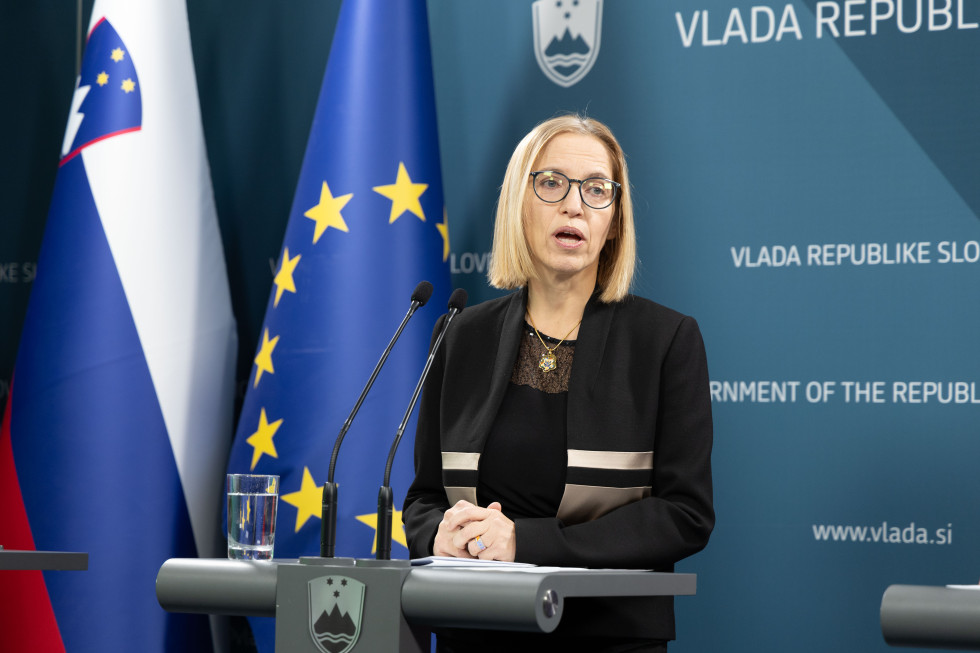138th regular session of the Government of the Republic of Slovenia
Prime Minister Robert Golob highlighted the ongoing challenges faced by the Savinjsko–Šaleška coal region noting that "the region has suffered enough and is still suffering today". It is the Government's task to create new, high-quality jobs and foster the development of the two coal regions. The Prime Minister emphasised that, in order to address these challenges, it was all the more important that any irregularities in tendering procedures for regional restructuring be resolved immediately. The Government has instructed the Ministry of the Economy, Tourism and Sport to develop and present to the Government more detailed guidelines and criteria for the drafting of calls for tenders for the allocation of public funds under the Programme of measures to promote entrepreneurship and competitiveness.
The Government adopted the draft Recognition of Professional Qualifications in Healthcare Act, which aims to harmonise and comprehensively regulate the procedures for the recognition of professional qualifications in a single regulation, with a view to facilitating, expediting and streamlining the recognition process. The draft Act lays down the conditions and procedure for the recognition of professional qualifications for regulated health professions in Slovenia. It applies to persons who have completed formal education or obtained a professional qualification in a third country, as well as to persons who have completed formal education without a full professional qualification in the EU Member States, the countries of the European Economic Area or the Swiss Confederation. While simplifying procedures, the draft Act ensures that the standards of professionalism, knowledge and quality of the candidates remain high. Experts will thoroughly assess candidates' training programmes and work experience to ensure that only qualified professionals are admitted to the Slovenian healthcare system.
The draft Medical Devices Act aims to ensure that high quality, safe, effective and compliant devices are available on the Slovenian market. This will be achieved through the appropriate national implementation of EU regulations and the regulation of specific aspects related to the supply of medical devices. In addition to the implementation of EU regulations, the draft Act defines the roles and responsibilities of entities involved in making medical devices available, including obligations related to the sale of medical devices to patients, the responsibilities of healthcare institutions, and the reuse of devices. The draft Act also lays down clear rules on the use of the Slovenian language, guidelines for advertising medical devices, and the role of stakeholders in emergency situations. It defines the competent authority responsible for performing regulatory tasks and ensures the allocation of resources necessary for its operation. To ensure patient safety, the Act outlines the responsibilities of stakeholders in monitoring the effectiveness and safety of devices (referred to as "vigilance") and introduces sanctions for violations of national or EU regulations.
The draft amendment to the Medicinal Products Act brings national legislation into line with EU law, ensuring that all medicinal products on the market are safe, of good quality and effective. It also aims to strengthen the control of their circulation, production and distribution. To better manage the risks of medicinal products shortages, the amendment focuses on ensuring the availability, safety, efficacy and quality of medicinal products. Among other provisions, it introduces a systemic framework for the supply and financing of medicinal products in exceptional circumstances. In addition, the amendment regulates the official quality controls of active substances used in magistral medicinal products, further enhancing their quality and safety. It also comprehensively addresses and complements the scope of non-routinely prepared advanced therapy medicinal products.


